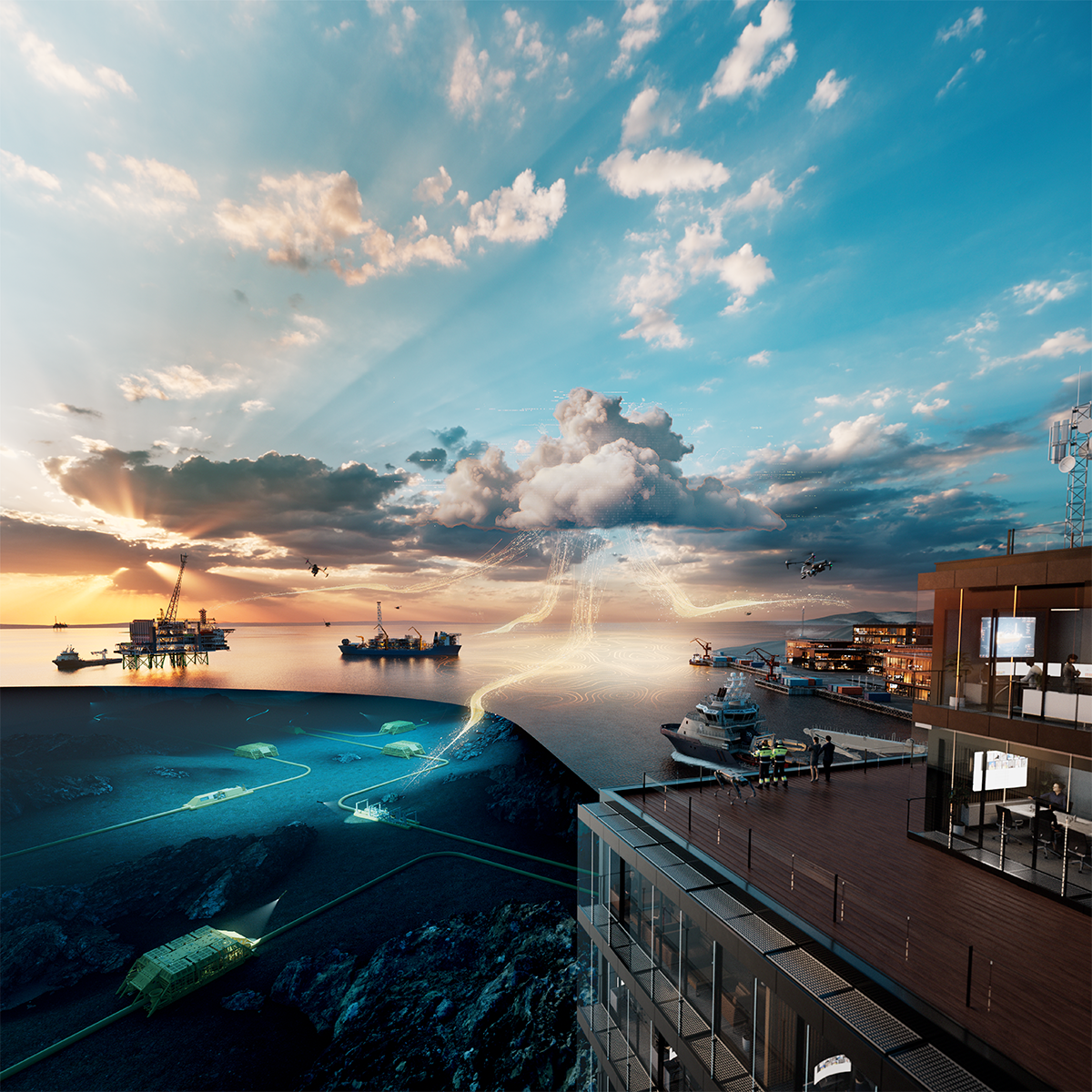Portal for technology proposals
Aker BP aims to develop a forward-thinking oil and gas enterprise with a focus on reduced expenses and carbon footprint, robust expansion, elevated profits and compelling dividends. Moreover, our participation is crucial in the worldwide shift in energy consumption.
By leveraging technology, we are revamping our value chains, using novel approaches to enhance efficiency and reduce redundancies.
Your insights on top-notch technologies are valuable to us.
The main focus areas for our technological development are:
Affordable access to reserves
Our current assets hold considerable potential and value that remain to be fully tapped. However, doing so will depend on the development of innovative technologies and methodologies that can economically liberate these untapped reserves.
The ability to bring oil equivalent to market at a reduced cost and to augment the amount of recoverable reserves is critical for evolving into an oil and gas entity prepared for the future.
Technologies that offer better subsurface understanding, cost-effective drilling, completion techniques enabling inexpensive reservoir access, as well as stimulation and sand control systems that provide long-term cost-effective productivity, along with practices that minimize expenses associated with slot recovery, are all instrumental in leveraging new technology for value creation.
We are seeking cost-efficient control and transportation of well streams from subsea drill centres to HOST processing facilities with integrated subsea production systems solutions and technologies which will remove/reduce dependency on services from the HOST and reduce flowline costs.
Production management
Aker BP’s portfolio includes well-established assets, alongside new projects that are progressing.
For our assets, a major emphasis should be placed on lowering operational expenditures and enhancing production effectiveness via improved water management, refining allotment techniques, reducing manual inspections by implementing robotics (both above and beneath the ocean surface), metering, etc.
We are experiencing an increase in water output. The activities associated with pumping, treating, and disposing of this water contribute to significant costs and negatively impact the environment. Implementing cost-effective methods to monitor, control, diagnose, and isolate water production at its origin can improve oil and gas recovery while also diminishing expenses and decreasing environmental footprints.
Optimizing Existing Well Potential & P&A
Our portfolio includes assets such as Alvheim, Edvard Grieg, Ivar Aasen, Skarv, Ula, and Valhall, which collectively consist of over 250 wells with a combined net output surpassing 400,000 barrels of oil equivalent each day. To optimize the performance and value of our wells, it is essential to ensure continuous and efficient operation throughout the duration of available reservoir energy—whether it’s unassisted or enhanced.
This requires averting and managing potential failures in well integrity, controlling unwanted sand and chalk extraction, sustaining reservoir energy for an extended period of production, implementing condition monitoring with predictive maintenance, and effectively managing issues like mineral scaling.
It further involves executing high-quality, cost-efficient well interventions that can bolster production, gather critical data for improved decision-making, or address any operational deficiencies.
Ultimately, our goal is to minimize or eliminate incidents that can lead to reduced productivity or downtime in our wells.
We must also find ways to transition tasks from large-scale, costly, and carbon-heavy rigs to smaller, more efficient solutions. The industry’s path forward demands easier removal of tubing and methods that ensure prompt and reliable barrier installation and testing for high-quality, efficient well abandonment.
Sustainability Commitment
Acknowledging the significant environmental challenges, our corporation is dedicated to assuming accountability for our carbon footprint with a goal to attain net-zero emissions in all operations by 2030.
Innovative approaches are imperative not solely for decreasing or eradicating emissions from our direct operations (through energy efficiency and emission reduction solutions) but also for lessening the cumulative climate impact throughout the lifecycle of the products and services we utilize.
We encourage you to submit technology initiatives that will directly impact any of the above.
